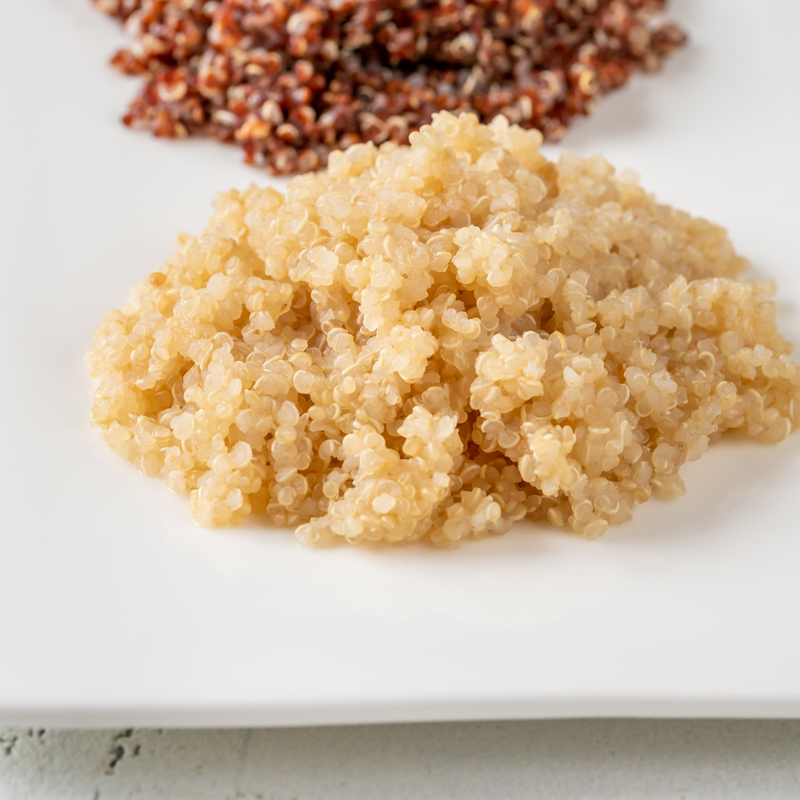
100 gr |
-- |
|
|---|---|---|
| Carbohydrate (gr) | 15.04 |
4928.47 |
| Protein (gr) | 3.59 |
1176.23 |
| Fat (gr) | 12.46 |
4083.43 |
| Fiber (gr) | 1.36 |
445.97 |
| Cholesterol (mg) | 14.64 |
4795.8 |
| Sodium (mg) | 325.27 |
106557.75 |
| Potassium (mg) | 392.16 |
128471.4 |
| Calcium (mg) | 78.15 |
25603.27 |
| Vitamin A (mg) | 46.04 |
15084.01 |
| Vitamin C (mg) | 6.16 |
2019.31 |
| Iron | 0.62 |
203.1 |
Quinoa is a pseudo-grain packed with protein and essential nutrients, making it an excellent alternative for vegetarians and those who avoid red meat for health, ethical, or dietary reasons. Often referred to as a "superfood," quinoa has gained global popularity in recent years.
The calories in cooked quinoa are 120 calories per 100 grams.
Quinoa is an edible seed often called "vegetarian caviar" due to its rich nutritional profile and versatility. It has become a healthy substitute for grains like wheat in Western countries and beyond, thanks to its superior nutrient density and gluten-free nature.
Quinoa is a powerhouse of essential nutrients:
Quinoa’s mild, nutty flavor and fluffy texture make it a versatile ingredient:
Quinoa is not just a food—it’s a nutritional powerhouse that caters to diverse dietary needs. Whether you’re looking for a plant-based protein source, a gluten-free grain alternative, or simply a way to improve your overall health, quinoa is a smart choice. Its wide range of vitamins, minerals, and antioxidants makes it a valuable addition to any diet.